Marxists Internet Archive
Library

International Working-men's Association
The founders of Marxism, Marx and Engels, participated in the “International Workingmen's Association” from 1864 to 1872, where they found their first base of support and a connection with the workers' movement. Based in London, the International found supporters across Europe and in the U.S.A. | ||
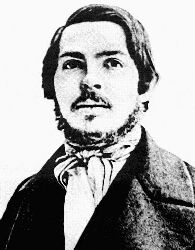 (1818-1883)/(1820-1895) 1,000+
(1818-1883)/(1820-1895) 1,000+ Founders of Marxist practice and philosophy. Established the ground work of Marxism through an examination of the rise of capitalism, the history of society, and critique of many prevalent philosophies. Established the First International Workers' organisation. [Marx Biography] [Engels Biography] | ||
|
(1808-1893) <5 French utopian who published a Democratic Manifesto in 1847. Member of First International and Paris Commune [Biography] (1816-1887) <5 French Poet, member of the First International, Communard, author of The Internationale. [Biography] (1818-1889) <5 German communist, supported Marx in the International and in British trade unions. [Biography] (1826-1900) 10+ German Revolutionary, comrade of Marx in the Communist League in the 1840s. [Biography] (1826-1906) < 5 After fighting in the 1848 Revolution in Germany, he fled to America; later Secretary of the First International; Marx's closest supporter in the US. [Biography] (1828-1888) < 5 Created dialectical materialism independently of Marx & Engels, but on seeing their writings became their most ardent supporter. His main contributions were using dialectics to elaborate epistemology. [Biography] (1836-1927) 5+ French Marxist who moved to the US and joined a forerunner of DeLeon's Socialist Labor Party [Biography] [Biography] |
(1825-1864) < 5 German socialist, contemporary and critic of Marx. [Biography] (1825-1910) < 5 German Revolutionary, comrade of Marx in the Communist League in the 1840s. [Biography] (1840-1913) 10+ Co-founder of the German Social Democracy with Wilhelm Liebknecht in 1869. Part of the Reichstag from 1867. Outstandingly argued for the emancipation of women's rights before capitalism could be overthrown. [Biography] (1841-1911) 30+ A member of the Paris Commune. Staunch advocate of Women's rights, wrote also on the history of religion, morals, literature, language, and comedy. Married to Marx's second daughter, Laura. [Biography] (1844-1883) < 5 Fought for Irish independence from England. Detailed the atrocities against Irish political prisoners in England. Braved a narrow escape from France after the massacres of the Paris Commune. Marx's eldest daughter. [Biography] (1845-1922) < 5 French socialist. Leader of the Marxist wing of the French workers' movement. [Biography] | |

The Socialist International
In the 1880s, militant workers' movements grew up in all the capitalist countries. Marxists built powerful social-democratic parties which gave political leadership to these movements and transformed Marxism into a worldwide, mass movement. | ||
|
(1854-1938) 60+ Helped create the German Social-Democracy, one of the best-known theoreticians of the Second International, and a leading proponent of Marx & Engels after their death. During and after World War I he became a pacifist. [Biography] British Social Democracy(1834-1896) 300+Helped create the Socialist League (with E. Marx). An artist who became a revolutionary communist through his search to address the lack of creative and artistic freedom allowed in the capitalist work process. Wrote fiction on far in the future Communist societies. [Biography] (1842-1921) 5+ Founder of Britain’s first socialist party, the Social Democratic Federation, but did not follow the SDF into the Independent Labour Party and supported the War. (1844-1929) < 5 English socialist poet, anthologist, early gay activist and socialist philosopher. [Biography] (1847-1933) < 5 British socialist, women's rights activist, writer and orator and supporter of Irish and Indian self rule. [Biography] (1848-1923) < 5 British socialist, became an anarchist after the collapse of the Socialist League. [Biography] (1849-1898) < 5 British socialist, married Marx’s daughter, Eleanor. [Biography] (1854-1925) 300+ Among the first sources for many Marxist and materialist ideas in English. Founding member of Social Democratic Federation. Popularised Marxist approach to French Revolution in English. [Biography] (1855-1898) 15+ Helped formed the Socialist League (with W. Morris), and wrote extensively in its paper. Wrote extensively on women's issues. Organizing, writer, record-keeper, and speaker for militant trade unions such as the Gasworkers, and the Dockers Union. [Biography] (1858-1913) 5+ Founding member of British Social Democracy. [Biography] (1851-1933) 100+ British feminist and founding member of the British Communist Party. [Biography] (1856-1941) < 5 British trade union organiser and founding member of the British Communist Party, founder of IWW and Marxist movement in Australia. [Biography] (1865-1940) <5 Australian Socialist, represented the ALP in the Victorian Parliament. [Biography] (1864-1943) 5+ German-born Jewish socialist journalist and historian, British Social-Democrat; worked with Riazanov at the Institut für Sozialforschung. [Biography] (1864-1943) 20+ Russian emigré British Social Democrat; returned to Russian after the Revolution and worked as a diplomat. [Biography] (1884-1947) 30+ Russian emigré British Social Democrat. [Biography] (1904-1989) < 5 Left Social-Democratic journalist and teacher, member of the German Rote Kämpfer network (influenced by council communism) in the 30's. Wrote under the pseudonym Rudolf Sprenger. Early American Marxism(1852-1914) 1,000+ Helped create the IWW. Developed one of the most detailed outlines of how Socialist society should function. Believed that democratic control of all industries and services must be held by workers organised into industrial unions. [Biography] (1855-1926) 40+ Helped build the American Railway Union, and later the American Socialist Party. Arrested for his political criticism of WW1, won almost a million votes for U.S. President while in prison. [Biography] (1860-1929) 10+ Austrian Marxist, founder of Social Democratic Party of America and its successor, the Socialist Party of America. (1861-1910) 10+ American socialist, best remembered for his 1904 and 1908 runs for Vice President of the United States on the ticket of the Socialist Party of America. [Biography] (1869-1933) 30+ One of the three primary leaders of the early Socialist Party of America, as well as a prominent labor lawyer in New York City’s Lower East Side during the early 20th century. [Biography] (1874-1952) 10+ Russian-born American Marxist theoretician, politician, and lawyer. He is best remembered as the author of a history of the Supreme Court's influence on American government, first published in 1932. (1861-1954) American educator, writer, member of the Socialist Party of America, and welfare activist in the social gospel movement, who tried to reconcile the doctrines of Marxism and Christianity. —————— (1868-1916) 300+ Helped create the Irish Socialist Republican Party in 1896; served as Secretary of the Transport and General Workers Union. Executed for his leading role in the Easter Rising. [Biography] (1868-1927) 10+ Collaborator of James Connolly; condemned to death after 1916, but elected as first woman MP to Westminster but refused to take her seat; Minister of Labour (1919-1922) in Irish revolutionary government; opponent of Anglo-Irish Treaty in 1922; sided with the republicans in the Irish Civil War. [Biography] |
(1843-1904) < 5 Among the first Italian Marxists, he was a writer and philosopher. Criticized the theories of Hegel, Nietzsche, Croce, and neo-Kantianism. [Biography] (1849-1922) < 5 Founder of Swedish Social-Democracy. [Biography] Mensheviks(1851-1919) < 5A founder with Plekhanov of the Emancipation of Labour Group, and a translator of Marx's works into Russian; later joined the Mensheviks. [Biography] (1856-1918) 20+ Helped create the Russian Social-Democratic party, becoming a Menshevik after the split in the party, but he tried to keep the party united. Believed that capitalism need to grow up before socialism was possible; thus he opposed the Soviet government. [Biography] (1873-1923) < 5 Originally close collaborator of Lenin, split with him in 1903 and became leading Left Menshevik and critic of Bolshevism. [Biography] (1884-1954) < 10 Bolshevik during 1904-07 and then adhered to the Mensheviks. [Biography] —————— (1850-1918) < 5 A leader of German Social-Democracy in the 1880s & 90s. (1854-1940) < 5 One of the founders of the Second International in France. [Biography] (1856-1929) < 5 Italian Marxist of the Second International, criminologist. [Biography] (1859-1933) 5+ Born Yabuki Sugataro, jailed for striking in 1912, left Japan for the US, where he became a Communist, and as an officer for Comintern he became in 1922, co-founder of the Japan Communist Party, left Japan and remained in the Soviet Union until his death. The Spartacist League(1846-1919) 10+Writer, historian, member of German Social Democrats and the Spartacist League. [Biography] (1857-1933) 20+ Leader of the international women's movement. National Executive member of the German Social Democratic party. Long time comrade of Rosa Luxemburg, helped create the Spartacists and German Communist Party. Supported the Soviet government. [Biography] (1871-1919) 60+ Championed the idea of the mass strike. Tireless opponent of WWI, she renounced the German Social Democracy, helped to create the Spartacus League, and later the German Communist Party. Critical of the Soviet government. Executed by the German government. [Biography] (1871-1919) 10+ “Karl Liebknecht called upon the workers and soldiers of Germany to turn their guns against their own government. Karl Liebknecht did that openly from the rostrum of parliament (the Reichstag) [of which he was a deputy – he was the only member of government to do so]." Executed by the German government. [Biography] (1884-1948) 20+ German socialist, founder member and theorist of the German Communist Party. [Biography] See also: Wilhelm Liebknecht, August Bebel, Wilhelm Pieck, Hugo Eberlein ——————(1877-1941) < 5 German socialist and political economist. [Biography] (1881-1938) < 5 Major theorist of “Austro-Marxism” in the “2½ International.” [Biography] (1881-1917) < 5 Marxist-Zionist and one of the founders of the Labour Zionist movement. [Biography] (1868-1954) <5 Australian Communist journalist, brother of Utopian William Lane. (1891-1972) <5 Austrian-born historian, journal editor, and political activist. He was the first Secretary General of refounded Socialist International from 1951-1956. | |
|
See also: Paul Lafargue, Jules Guesde, Vladimir Lenin, Leon Trotsky, Leon Kamenev, Sylvia Pankhurst, Vida Goldstein. | ||
Reformism(1850-1932) 10+ A close associate of Engels and an early Marxist, Bernstein came to believe that capitalism could be made more and more democratic so that a socialist revolution would be unnecessary and irrelevant. [Biography] (1859-1914) 10+ Popular French socialist. Founder of l'Humanité. [Biography] (1860-1925) <5 A founder of Swedish social democracy. [Biography] (1876-1938) <5 French socialist, son-in-law of Marx; later pacifist and centrist. [Biography] (1872-1950) <5 Leader of Popular Front government in France 1936-1939 [Biography] (1870-1906) <5 Priest who led the historic peaceful march of workers to the Winter Palace in 1905. (1882-1970) <5 Member of the Russian Socialist Revolutionary Party; was leader of the Provisional Government when overthrown by the Bolsheviks in October 1917. [Biography] (1888-1953) <5 Socialist Revolutionary, Jewish Territorialist [Biography] (1901-1977) Italian socialist, critic of bureaucracy. [Biography] |
Fabian Society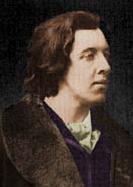 (1854-1900)
(1854-1900)Irish poet and playwright who was also a socialist. [Biography] (1856-1950) Irish writer and playwright, comrade of Eleanor Marx, Edward Aveling, and William Morris, later joined the Fabian society, a circle of intellectuals who advocated reform to avoid revolution. [Biography] (1856-1915) <5 British labour leader, founded ILP in 1893, MP for Merthyr Tydfil from 1900. [Biography] (1859-1920) British socialist. (1866-1946) Radical science fiction author who used his novels to warn of the dangers of capitalism. [Biography] —————— (1846-1906) Radical Irish social reformer, founder and leader of the Irish Land League, which fought for radical land reform. [Biography] (1889-1959) English guild socialist and notable socialist historian. | |

The BolsheviksSocial-democracy was unable to prevent the First World War, and only one section – the Bolshevik Party in Russia, was able to overthrow their government, pull out of the war and institute a socialist policy. The Bolsheviks called on the workers of all countries to come to their aid. | ||
|
(1870-1924) 1,000+ Helped create the Bolshevik party. Led the Soviets to power in the Russian Revolution. Elected to the head of the Soviet government until 1922, when he retired due to ill health. Created the Communist International. Created the theory of Imperialism, emphasised the importance of the political party as vanguard in the revolution. [Biography] (1868-1936) 10+ World-renowned writer of fiction, Gorky first focused on the plight of societal outcasts in Russia, then turned his attention to the struggles of the working class. [Biography] (1869-1939) < 10 Bolshevik Revolutionary. Writer, educator and Secretary of the Party. Wife and advisor to V.I. Lenin. Secretary to the Board of Iskra beginning in 1901. Brought recognition of International Women's day to Russia. [Biography] (1870-1938) < 10 Historian and Archivist of Marxism, helped create the Marx-Engels Institute. Political prisoner of Stalinism, died in prison. [Biography] (1872-1952) 30+ Bolshevik Revolutionary. Led the Workers' Opposition, which opposed party control of trade unions and believed in industrial unionism. First woman ambassador in history. Proponent of free love, she wrote extensively on women's and other social issues. [Biography] (1872-1936) 20+ One-time Diplomat and Social-Revolutionary, appointed Minister for Foreign Affairs for the Bolsheviks in 1918. [Biography] (1873-1941) 20+ President of Soviet Ukraine, worked to make the Soviet Ukrainian identity independent of Russia. Helped create the Left Opposition, seen as its ideological leader. Explained Socialist economics. Political prisoner of Stalinism, died in prison. [Biography] (1873-1928) < 5 Russian Doctor, an old Bolshevik expelled in 1909 as an ultra-left. Also a writer, after the Revolution dedicated himself to science. [Biography] (1875-1933) 5+ Bolshevik Revolutionary, outstanding orator. Commissar for Education in the Soviet government. Historian and archivist of Russia, he wrote extensive, personal biographical portraits on the leaders of the revolution. [Biography] (1876-1960) < 5 Bolshevik who wrote a celebrated history of her experiences. (1877-1926) < 5 Polish communist. Headed the Cheka after 1917. (1880-1936) < 5 Old Bolshevik, trade unionist. [Biography] (1880-1936) < 5 Old Bolshevik, Brest-Litovsk negotiator, Ambassador to England, and People's Commissar for Finance. [Biography] (1882-1938) < 5 Old Bolshevik and early opponent of Stalin's Terror. (1884-1937) < 5 Bolshevik leader and economist, served as People's Commissar for Agriculture and directed the Central Statistical Administration. (1883–1938) < 5 Bolshevik leader, Secretary of the Military Revolutionary Committee of the Petrograd Soviet, led the attack on the Winter Palace, leading figure in Red Army during the Civil War (particularly in Ukraine), critic of NEP, Soviet diplomat – Soviet Consul General in Barcel during repression of POUM, recalled to Moscow (August 1937), arrested (October 1937) and shot (February 1938). (1886-1937) <5 Georgian-born Bolshevik, was Commissar of the Ukraine, and put in charge of Soviet heavy industry. [Biography] |
(1879-1940) 100+ First Menshevik, later Bolshevik Revolutionary. As commissar of war led the Red Army to defeat the Entente in their invasion of Soviet Russia. Helped create the Left Opposition to overthrow Stalin and, to stop the monstrous atrocities that Trotsky believed he'd soon commit. Created the theory of the Permanent Revolution, and the Fourth International. Assassinated by the Soviet government. [Biography] (1882-1962) 20+ Russian Revolutionary. Worked with Lenin and Trotsky on pre-revolutionary Bolshevik newspaper Iskra. Publicly split with Fourth International in 1951. Wife of Leon Trotsky. [Biography] (1883-1927) < 5 Member of the 1917 Central Committee of the Bolshevik Party, with Trotsky, negotiated with the Germans at Brest-Litovsk. As a supporter of Trotsky, he was sent abroad as a diplomat by Stalin, but took his own life in 1927. [Biography] (1883-1936) < 5 Old Bolshevik and founding member of Russian Social Democratic Labour Party. First chairman of Central Committee and a founding member of the politburo. First supported Stalin, then joined Trotsky to try to remove him. Imprisoned and placed on trial for alleged assassination plot against Stalin. Executed by the Soviet government. [Biography] (1883-1936) 30+ Bolshevik. With Kamenev, opposed the plans for a revolution. Allied with Stalin and Kamenev against Trotskyism. Later, allied with Trotsky against Stalin. Wrote about the history of the party. Executed during the Moscow Trials. [Biography] (1884-1937) < 5 Bolshevik and prominent humanist Marxist critic and editor of the 1920s, purged in the 1930s. (1885-1937) < 5 Old Bolshevik, a member of the Central Committee during the October Revolution and member of the “Workers Opposition” after the Revolution. Executed by the Soviet government. [Biography] (1885-1939) 50+ Old Bolshevik, active in the Communist International in Europe. Died in prison. [Biography] (1888-1938) 20+ Bolshevik Revolutionary. Editor of Pravda (1928-29). Joined Stalin against Trotsky, then led the Right Opposition against Stalin. A theoretical leader of the party, focused heavily on economics, and wrote on market socialism. Executed after the Moscow Trials. [Biography] (1887-1938) < 5 Left Communist, led the Group of Democratic Centralism in 1920-21, supported Trotsky. Ambassador to Sweden. (1889-1945) <5 Young Bolshevik, Member of the Workers Group. [Biography] (1888-1938) < 5 Left Communist, member of the Left Opposition. (1892-1939) < 5 Bolshevik sailor who chronicled the October Revolution. (1898-1937) <10 Young Bolshevik, Member of the Left Opposition. Executed after the Moscow Trials. [Biography] | |
|
See Also: Josef Stalin, Alexander Lozovsky, Vyacheslav Molotov. | ||

The CominternIn 1919, the Bolsheviks held a conference attended by revolutionaries from every corner of the world, and established the Communist International (Comintern); soon there were Communist Parties in every country, drawing the most militant workers to the Bolsheviks. After its dissolution in 1943, the various parties that had made it up kept in touch through the Information Bureau of the Communist and Workers' Parties (Cominform), and through various international conferences. NOTE: This listing is a work in progress. Writers are always being added. Some appear under multiple sub-heads on this page. | ||
|
(1865-1941) < 5 Russian revolutionary, joined French CP as an exile. [Biography] (1873-1935) < 5 Pacifist novelist who joined the French Communist Party. (1878-1952) 5+ Old Bolshevik, Ukrainian Jewish worker, leader of the Red International of Trade Unions. [Biography] (1879-1964) < 5 Hungarian communist, Marxist Economist of the early Comintern. (1886-1937) < 5 Russian Marxist Economist. ——— (1872-1932) <5 German Communist and one of the first to develop the idea of National Bolshevism. Also known by the pseudonym Karl Erler. (1876-1960) <5 Carpenter, Spartacist and founder of the German CP; later a supporter of Stalin, in 1949 appointed President of the GDR. (1884-1936) <5 Founding member of the Communist Party of Germany and the Spartacist League. (1881-1967) < 5 German socialist and trade unionist, Member of the Spartacists, founder member of the German Communist Party, later oppositionist. (1890-1960) 5+ Prominent German theorist. Expelled from the Communist Party for "right-wing deviation" in 1928 as main theorist for the Brandlerites. Particularly occupied with analyzing the actual class struggle of his time on independent Marxist grounds. [Biography] (1916-2017) 5+ German communist and historian, participated in socialist youth organisations before WW2, joined the Brandlerite opposition after the end of WW2 and the Linkspartei when it was formed in 2007. [Biography] (1893-1973) <5 A founder of the German CP, and leader of the DDR until 1971. (1884-1953) <5 Journalist and founding member of the Communist Party of Germany and its paper, Die Rote Fahne. (1889-1940) <5 Member of the Communist Party of Germany and first head of the Young Communist International. (1887-1930) <5 Founder Member of the German Communist Party, removed from leadership for opposing "third period" policies. [Biography] (1887-1970) <5 Founder Member of the German Communist Party, removed from leadership for opposing "third period" policies. [Biography] (1888-1942) <5 German Communist and leading figure in the National Bolshevism tendency. (1886-1930) <5 German Communist, activist in the Comintern. [Biography] (1890-1947) 10+ Originally an anarchist, later joined the Russian Communist Party. As a Comintern representative in Germany he helped prepare the aborted insurrection in 1923. Also joined the Left Opposition in 1923, expelled from the party in 1928 and briefly imprisoned. Exiled in 1933. [Biography] (1891-1937) 50+ Helped create the Italian Communist Party. Arrested in 1926 for his revolutionary activities and sentenced by a fascist court to 20 years imprisonment. Theorized key concepts such as hegemony, base and superstructure, organic intellectuals, and war of position. [Biography] (1893-1964) <10 A leader of the Italian CP, regarded as the founder of “Eurocommunism.” [Biography] (1901-1977) Popular Italian communist, on the left of the PCI and a historian. [Biography] (1879-1923) 40+ Scottish schoolteacher and Marxist educator. His evening-classes produced many of the activists who became instrumental in the Clyde revolts during and after WWI. Soviet Consul to Scotland. [Biography] (1879-1962) < 5 French Psychologist who elaborated a systematic Marxist psychology. [Biography] (1881-1960) < 5 French communist. Founding member of PCF, expelled in 1924, revolutionary syndicalist. [Biography] (1883-1969) 5+ Founding member of PCF but expelled for his opposition to Stalinism. [Biography] (1883-1924) < 5 Founding member of the South African Communist Party. (1886-1937) 10+ Hungarian Communist, activist in the Comintern. [Biography] (1891-1938) < 5 Hungarian Communist, official in the early Comintern. (1887-1975) <5 A founder of the Australian CP, member of ECCI, joined Trotskyists 1939. [Biography] (1892-1980) 5+ Yugoslav communist, participated in the October Revolution and built a partisan army during World War Two which won national liberation for Yugoslavia and united the country. Broke with Stalin over the Post-War settlement and took an independent line. [Biography] (1892-1937) <5 Founder of Communist Party and in 1935 of the POUM in Spain. [Biography] (1901-1987) <5 Member of the POUM in Spain. (1894-1930) 5+ Peruvian Professor. Leader of the Peruvian Communist Party. Self-educated. Historian of European Marxism and movements in South America. [Biography] (1887-1954) 20+ Indian Communist and key leader of the Comintern, later a radical humanist. [Biography] (1892-1970) 5+ American Communist who helped her husband, M.N. Roy, found Communist Parties in Mexico and India. [Biography] (1883-1942) < 5 Dutch communist, early organiser for the Comintern, founding member of Communist Party in Indonesia. [Biography] (1897-1949) 15+ Indonesian Communist, briefly became the Chairman of Indonesian Communist Party in 1921 before being exiled by the Dutch for the next 21 years. A prominent figure in the Indonesian national liberation movement and workers movement. [Biography] |
Early U.S Communists
(1875-1942) < 30 | |
|
See Also: James Cannon, Karl Korsch, Georg Lukács, Sylvia Pankhurst, Alois Neurath. | ||
|
General Secretary of Soviet Communist Party from 1917 till his death in 1953. Responsible for the murder of the entire Bolshevik leadership and the consolidation of bureaucratic rule in the USSR. [Biography] (1881-1964) < 5 Finnish Communist and Comintern leader under Stalin. (1882-1949) 20+ Long-standing leader of Bulgarian C.P. [Biography] (1890-1986) Soviet leader who succeeded Stalin. [Biography] (1894-1971) 10+ Leader of Soviet Union who denounced Stalin in 1956 and tried to reform Soviet society. [Biography] (1906-1982) 10+ Leader of Soviet Union from 1964 to his death in 1982. (1914-1984) < 5 Soviet politician and the fourth General Secretary of the CPSU. Leader of Soviet Union from 1982 to his death in 1984. (1911-1985) < 5 Soviet politician and the fifth General Secretary of the CPSU. Leader of Soviet Union from 1984 to his death in 1985. (1931-2022) 10+ Soviet politician and the final General Secretary of the CPSU. Leader of Soviet Union from 1985 to the country's dissolution in 1991. (1883–1959) < 5 Functionary in the Comintern and foreign service. (1899-1953) < 5 Close associate of Stalin, leader of Secret police 1938 until Stalin’s death. [Biography] (1902-1988) < 5 Soviet politician, succeeded Stalin as Chairman of the Council of People’s Commissars of the USSR from 1953–1955. (1895-1975) < 5 Soviet politician and minister in the Red Army. Succeeded Malenkov as Chairman of the Council of People’s Commissars of the USSR from 1955–1958. (1902-1982) < 5 Soviet politician and member of the Central Committee of the Soviet Communist Party. (1912-1993) < 5 Kazakh politician and member of the Central Committee of the Kazakh and Soviet Communist Parties. Served as First Secretary of the Kazakh CP. (1895-1970) 5+ Pro-Soviet Chinese warlord and military governor of Xinjiang from 1933 to 1944. Self-avowed Marxist since his youth, he joined the CPSU in 1938. Later he was part of the KMT government. —— (1892-1971) 5+ General Secretary of the Hungarian Working People's Party and head of state to the Hungarian People's Republic from 1947 to 1956. (1912-1989) <5 General Secretary of the Hungarian Socialist Workers' Party and head of state to the Hungarian People's Republic from 1956 to 1988. (1900-1980) <5 Secretary of the Central Committee of the Bulgarian Communist Party 1949 to 1954, Prime Minister of the People's Republic of Bulgaria 1950 to 1956. (1911-1998) <5 Secretary General of the Bulgarian Communist Party, head of state of the People's Republic of Bulgaria 1954 to 1989. (1912-1994) 10+ Leader of East Germany's Socialist Unity Party, and head of state of the German Democratic Republic from 1976 until 1989. (1918-1919) 10+ General Secretary of the Romanian CP and head of state of the Socialist Republic of Romania 1967-1989. --------------- (1916-1991) 5+ General Secretary of the Mongolian People's Revolutionary Party and head of state to the Mongolian People's Republic. (1920-1992) <5 First leader of the Lao People's Revolutionary Party since 1955, and de facto head of state of the Lao People's Republic, until his death in 1992. —— (1900-1964) 5+ Post World War Two leader of the French Communist Party. [Biography] (1897-1982) < 5 French Communist Poet. [Biography] (1903-1942) < 5 French Marxist philosopher. [Biography] C.P.U.S.A.(1878-1939) 5+ A leader of the Jewish Bund, and later leading member of the CPUSA. [Biography] (1881-1961) 10+ Trade unionist and leader of the Communist Party of the USA. [Biography] (1891-1974) <5 Leader of the Communist Party of the USA during the Depression and the War. [Biography] (1893-1957) 10+ Trade unionist and leader in the Communist Party, USA. Was several times the party's candidate for vice-president of the United States. (1910-2000) <5 Trade unionist and leader of the Communist Party of the USA. (1912-1999) <5 Marxist economist and a longtime member of the National Committee of the CPUSA. (1915-1964) 10+ Trinidad and Tobago-born Communist, feminist and Black nationalist, member of the Communist Party USA and Communist Party of Great Britain. (1920-1993) >10 Marxist literary critic. (1897-1977) <5 American Communist leader who played important role in Latin American Left. |
 British Communist Party
British Communist PartyThe CPGB History Archive includes a number of writers who were members of the Communist Party of Great Britain, including R. Page Arnot, Thomas Bell, B. F. Bradley, Tom Brown, Emile Burns, J. R. Campbell, Maurice Conforth, Idris Cox, Helen Crawfurd, Maurice Dobb, Clemens Dutt, Joseph Fineberg, Ralph Fox, Will Gallacher, John Gollan, Wal Hannington, Arthur Horner, J. F. Horrabin, Albert Inkpin, T. A. Jackson, Monty Johnstone, James Klugmann, Arthur MacManus, A. L. Morton, J. T. Walton Newbold, Eden & Cedar Paul, William Paul, Marjorie Pollitt, R. W. Postgate, Stewart Purkis, Tom Quelch, Bert Ramelson, Andrew Rothstein, Theodor Rothstein, William Rust, Shapurji Saklatvala, John Strachey, Beth Turner, Ellen Wilkinson, Joseph Winternitz, Tom Wintringham, Jack Woddis, and others as well as fellow-travellers such as Hewlett Johnson. (1888-1965) 120+ Founding member of the CPGB and noted figure in Comintern and RILU matters who moved the resolution expelling Trotsky from the Comintern in 1927. [Biography] (1890-1960) General Secretary of CPGB from 1929 till 1956, apart from 1940 when he opposed Stalin-Hitler Pact. [Biography] (1896-1974) Member of the Independent Labour Party before joining the Communist Party in 1920, Dutt was a member of the Executive Committee of the CPGB from 1923 until 1965. [Biography] (1901-1971) 15+ Popularised Marxism. Wrote a 4 volume history of science from a Marxist perspective. [Biography] (1907-1937) 5+ English philosopher and writer, won to Marxism in the 1930s and died fighting for the Republican cause in Spain in 1937. Wrote classic Marxist analyses of literature and art. [Biography] (1912-2003) < 5 English Marxist historian. [Biography] —— (1895-1989) <5 Leader of the Spanish Communist Party during the Civil War. [Biography] (1898-1990) <5 Leader of the Brazilian Communist Party. (1903-1973) <5 Leader of the Greek Communist Party during World War Two and the Greek Civil War. (1913-2005) <5 Leader of the Portuguese Communist Party under Fascism and until 1992. (1891-1973) Australian journalist documented US imperialist crimes, especially in S.E.Asia; Australian government removed his Australian citizenship. (1898-1967) Leader of Communist Party of Australia 1925-1949. [Biography] (1891-1973) A leader of the Canadian Communist Party, trade unionist, and agitator, especially among the unemployed during the Depression; loyal supporter of the Soviet line. [Biography] (1907-1983) Canadian trade unionist, Communist and Member of Parliament. [Biography] (1927-1974) Guatemalan poet and Communist leader. [Biography] (1899-1991) Founding member of the Communist Party of India, and trade unionist. (1904-1990) Secretary General of the Communist Party of India, trade unionist. Later founding member of CPI (Marxist). (1945-2001) Turkish Communist. (1930-2006) < 5 General Secretary of the Communist Party of El Salvador, and guerrilla commander in the Farabundo Marti National Liberation Front (FMLN) in the 1980s. [Biography] —— (1909-1972) 10+ A Haganah Chief of Staff turned communist leader, his career was defined by volatile ideological reversals, swinging from the heart of the Zionist establishment to fervent anti-Zionism and back. (1918-1975) 10+ One of the outstanding leaders of the Communist movement in Israel. She served on the Central Committee of the CP of Israel for over three decades until she parted company with it in 1973 and formed the Israel Communist Opposition (AKI). (1918-2003) 20+ Key Israeli Communist leader, he was the last living signatory of the Israeli Declaration of Independence. Active in both Jewish and Arab causes, he advocated for Palestinian rights and a peaceful, shared future, while serving in the Knesset from 1949 to 1990 as a representative of the CP of Israel. (1919-1985) 5+ Palestinian Marxist historian, theorist, and journalist, co-founder of the National Liberation League and Al-Ittihad newspaper, and a leader and ideologue of the Communist Party of Israel. ————— Hoxhaists (1908-1985) 5+ Leader of Party of Labor of Albania, head of the People's Socialist Republic of Albania; followed separate foreign policy, anti-Khrushchev, anti-Mao and pro-Stalin. [Biography] (1925-2011) <5 Leader of Party of Labor of Albania and Albanian head of state. Successor to Enver Hoxha. (1915-1979) <5 Leader in the Party of Labor of Albania, diplomat, and high-ranking member of the government of the People's Socialist Republic of Albania. (1912-1981) 5+ Member of the anti-Nazi resistance, primer minister of the People's Socialist Republic of Albania from 1954-1981. (1916-2001) New Zealand-born communist, supporter of Enver Hoxha in Britain. [Biography] See Also: Nexjmije Hoxha ————— Juche Ideologists (1942-2011) Leader of the Korean Workers Party and head of state of the Democratic People's Republic of Korea. Son of Kim Il Sung. See Also: Kim Il Sung | |
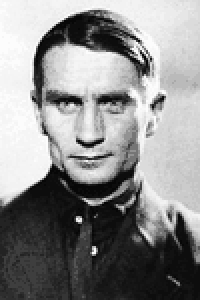
Soviet Philosophers and ScientistsWriters – scientists, philosophers, teachers – in the Soviet Union were obliged to develop their ideas in terms of the official orthodox Marxist dogma. Most of these writers cannot properly be described as Marxists, but nevertheless their work has contributed in some way or another to our understanding of Marxism. | ||
|
(1855-1935) Soviet scientist who carried out groundbreaking research in genetics. [Biography] (1874-1949) Architect of Soviet Health System. [Biography] (1928-1998) Soviet political economist. [Biography] |
(1888-1939) Soviet educationalist who promoted development of virtues of discipline and collectivism. [Biography] (1891-1951) Soviet Scientist. (1898-1976) Promoted theory of inheritance of acquired characteristics as the official Communist Party line in biology. [Biography] | |
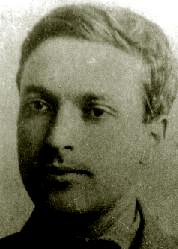
Soviet MarxismDespite the suppression of Trotskyism and the impossibility of open political discussion in Stalin's Soviet Union, a few Russians continued the development of Marxism in Psychology, Medicine, Law and the Sciences. This “non-political Marxism” only dared to show its political colours after Stalin's death. | ||
|
(1891-1937) 10+ Foremost exponent of the Marxist approach to Law. [Biography] (1895-1936) 5+ Soviet linguist, associate of Mickhail Bakhtin. [Biography] (1924-1979) 5+ Soviet philosopher. Charted the materialist development of Hegel's dialectics. Wrote extensively on dialectics, the Metaphysics of Positivism, and The Dialectics of the Abstract and Concrete in Marx's Capital. [Biography] (192?- ) < 5 Soviet psychologist who wrote on foundations of subjectivity. (1923-1974) < 5 Soviet psychologist who developed education of deaf-blind children. (1930-2006) < 5 Soviet philosopher who challenged simplistic ideas of subjectivity. |
(1896-1934) 10+ Soviet Psychologist who founded the Cultural Historical Activity Theory (CHAT) school of human development. [Biography] (1902-1977) < 5 The creator of neuropsychology. Soviet Psychologist who made advances in cognitive psychology, the processes of learning and forgetting, and mental retardation. Charted the way in which damage to specific areas of the brain affect behavior. [Biography] (1904-1979) < 5 Soviet Psychologist who developed his own theory of activity which linked social context to development. [Biography] (1904-) < 5 Soviet Psychologist who developed cultural-historical activity theory in the field of childhood development. | |
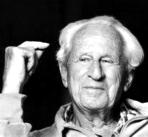
Western MarxismAs it became clear that the world revolution had not spread beyond Soviet Russia, the Communist Parties still exercised great influence, particularly in the workers movement, but some Marxists turned to the unique problems of fighting capitalism in advanced capitalist countries where revolution was no longer on the immediate agenda. | ||
|
(1885-1971) 10+ Hungarian philosopher, writer, and literary critic. Commissar for Culture and Education in Hungary's short-lived Socialist government (1919). Helped lead the Hungarian uprising of 1956 against Stalinist repression. Created Marxist theory of aesthetics that opposed political control of artists, defended humanism, elaborated alienation. [Biography] (1898-1967) <5 Polish Marxist political economist. [Biography] (1892-1964) 10+ British geneticist, biometrician, physiologist, and popular advocate of science; “Fellow traveller” of the British CP. (1893-1982) 5+ Japanese Marxist economist who wrote on the history of political economy and Marx’s theory of crisis and money edited the 15-volume Marx-Lexikon zur Politischen Ökonomie. [Biography] Marxism in Japan. The French Left(1858-1942) <5French philosopher. [Biography] (1901-1972) <5 French intellectual, poet, and teacher. Existentialist philosopher who played an important role in the non-Communist Party Left in post-World War Two France, existentialist, later attracted to Marxism. [Biography] (1923-2007) < 5 Austrian and French social philosopher. A supporter of Jean-Paul Sartre's existentialist version of Marxism. After the May '68 student riots, he became more concerned with political ecology. (1905-1940) < 5 French writer and Communist Party militant, friend of Jean-Paul Sartre; resigned CP after Stalin’s pact with Hitler, killed near Dunkirk in 1940. [Biography] (1918-1990) 10+ Criticised Marxism from the standpoint of Structuralism. [Biography] (1926-) < 5 French philosopher, who has written on personality and ethics, member of CC of French Communist Party. [Biography] (1931-1994) < 5 Left Communist, founder of the Situationist International who wrote “the society of the spectacle” in 1967. Valued by “Autonomists.” [Biography] (1945-2003) < 5 French Marxist, variously Maoist and follower of Althusser, Trotskyist (Gauche Prolétarienne), Islamist and assistant to Jean-Paul Sartre before returning to the study of the Talmud. [Biography] (1919-2001) 20+ A Central Organiser of SPGB from Glasgow, wrote for Socialist Standard and Socialist Studies. [Biography] (1930-2010) 20+ Writer and speaker for SPGB, wrote for Socialist Standard and Socialist Studies. [Biography] |
(1886-1961) 5+ German Left Communist who wrote one of the founding documents of “Western Marxism”, expelled from the Comintern. Became pessimistic about the prospects for socialism by the end of World War Two, but was later to become a supporter of Mao. [Biography] (1879-1960) <5 Secretary of the Austrian Social Democratic Party from 1911 to 1916, and a founder of the 2½ International. [Biography] The Frankfurt School(1881-1950) < 5Polish-Jewish Communist, Marxist Political economist. (1892-1940) < 5 Critic of degeneration of art under capitalism [Biography] (1895-1973) 5+ Long-term leader of the Frankfurt Institute from 1930, theorised Fordist, mass-production society. [Biography] (1900-1993) < 5 Philosopher who wrote on literary theory. [Biography] (1900-1980) 5+ German-born U.S. psychoanalyst and social philosopher who explored the interaction between psychology and society. By applying Freudian principles to social problems, Fromm helped show the way to a psychologically balanced, “sane society.” [Biography] (1903-1969) < 5 Philosopher who studied the effects of mass culture and fascism on European society. [Biography] Last member of the original Frankfurt School, reached a broader audience in the 1960s with his critique of “consumer society” and the containment of opposition. [Biography] (1929- ) < 5 Leader of second generation of the Frankfurt School, theorised the idea of “networks” as opposed to Party and class, and initiated study of procedural ethics. [Biography] Socialist Party of Great Britain(1872-1929) 50+Founding member of the SPGB. [Biography] (1890-1976) 40+ Writer and bookseller, member of the SPGB. [Biography] (1900-1995) 200+ The son of a founding member of the SPGB, joined the party in 1922. [Biography] (1901-1995) 10+ Speaker and organiser for the SPGB, formerly member of CPGB. [Biography] (1932-2007) 50+ Australian-born.Journalist for the Socialist Standard. [Biography] | |
 TrotskyismAfter the victory of Hitler in Germany, Leon Trotsky concluded that the Third International was dead for the purposes of revolution, and launched the Fourth International with his supporters in countries around the world. Trotskyism became an opposition force in the workers' movement everywhere. | ||
|
(1890-1974) 100+ American, IWW organiser, later helped create the US Communist Party. In the 1920s became a Trotskyist, and helped create the US Socialist Workers Party. [Biography] (1900-1997) 20+ Early American Trotskyist. (1900-1943) 10+ Greek Trotskyist. Lead mass movements of veterans and defended workers in court. Wrote extensively about Trotsky. Shot dead by fascists while in prison. [Biography] (1901-1971) < 5 Early member of Chinese CP, a founder of Trotskyism in China. (1901-1988) < 5 South African communist who travelled to China and wrote extensively on China as a Trotskyist. (1886-1955) < 5 a founder member of the Czechoslovak CP and supported Trotsky during the 1930s. (1898-1992) < 5 Croatian Communist and one of the founders of the Communist Party of Yugoslavia (KPJ), lived in the Soviet Union from 1926 to 1935, sympathizer of the Left Opposition. (1904-1972) 20+ American Communist Party, then helped create the American Trotskyist movement. Left the SWP and joined the Socialist Party. [Biography] Supporters of Max Shachtman include: Mary Bell, Reva Craine, Ernest Erber, Ben Hall, Gordon Haskell, Julius Jacobson, Shirley Lawrence, Ernest Rice McKinney, Sylvia Merrill, Andrzej Rudzienski, Gertrude Shaw and B.J. Widick. (1905-1987) 20+ American Trotskyist who broke with Trotsky with a concept of bureaucratic collectivism, later writing about the “managerial revolution.” (1903-1983) 50+ American Trotskyist. (1905-1992) 10+ American Trotskyist and writer on Marxist philosophy. [Biography] (1906-1988) 5+ American Trotskyist, wrote a classic history of the Spanish Revolution. After the WWII, understood that Capitalism would recover and dominate the world, and that Socialism had a long struggle ahead. [Biography] (dates unknown) 50+ Early American Trotskyist, broke over the French Turn, Oehler-Stamm tendency. (1910-1979) 10+ A leader of the US SWP 40s-60s, advocate for Cuban revolution. (dates unknown) 50+ Editor of SWP's Northwest Organizer, joined Shachtmanites in 1947. The U.S. Socialist Workers Party also include: Lydia Beidel, Grace Carlson, Charles Curtiss, Vincent R. Dunne, Fred Halstead, Antoinette Konikow, Sherry Mangan, George Clarke and Steve Zeluck. (1929-1990) 5+ American Trotskyist. (-) 5+ American Trotskyist, member of Workers Party. (1920-1976) 10+ US Trotskyist in 1930s/40s, editor of Monthly Review Press from 1967. [Biography] (1939-2008) <5 Member of US SWP, advocate of “turn to industry,” expelled 1980. (1910-1941) 5+ German Jew expelled from the Communist Party for supporting Leon Trotsky, fled to France and later Norway he was eventually assassinated by a Stalinist agent. [Biography] (1906-1984) 10+ French Trotskyist, a founder of the International Left Opposition in 1928, later a leader of the LCR. [Biography] (1911-1996) 5+ International Secretary of Fourth International after WWII. Minister in Ben Bella's Socialist government of Algeria. Developed theory of "centuries of deformed workers states". [Biography] (1914-1976) 5+ Romanian trotskyist, active in France from 1936. In 1939, he broke with the IVth International groupings in France and founded the "Groupe Communiste (IVéme Internationale), latter renamed "Union Communiste (Trotskyste)". Today's "Lutte Ouvriére" group claims to stand in the continuity of Barta's UC(T). [Biography] (1915-2008) 50+ Leading figure in Canadian Trotskyism for 57 years. < 10 Canadian Trotskyist of the 1930s. (1912-1981) <5 Argentine Trotskyist. <5 Bolivian Posadist. (1927-2010) <5 A member of Argentina's Workers Party and a founder of Chile's MIR. . (1930-1995) < 5 British Trotskyist. (1912-1986) <5 British Trotskyist. (1913-1989) <5 British Trotskyist. >10 British Trotskyist, member of RCP. (1917-1989) 20+ British Trotskyist, historian and translator. (1940-1997) < 5 British Trotskyist, economist. (1927-2015) < 5 Hungarian Trotskyist. (1946-2010) 5+ Student leader in France, May ’68, later a leader of the LCR, more recently the NPA, one of the most prominent theoreticians of 4th International after death of Ernest Mandel. [Biography] ——— (1963-2008) 20+ Cuban Trotskyist. (1904-1969) 10+ Mexican Trotskyist (1902-2003) 10+ Argentine Trotskyist, founder of the Revolutionary Workers League. Also known by the pseudonyms of "Quebracho" and "Lobodon Garra." (1920-2004) 5+ Founder member of the South African Congress of Trade Unions (SACTU), defendant with Mandela in the 1956-61 Treason Trial; in exile in Ireland was a leading member of the Marxist Workers Tendency of the ANC and the CWI. (1946-2014) 5+ British activist of Guyanese origin, member of the Militant Tendency and Socialist Party. |
(1913-2006) 100+ South African-born British Trotskyist, a founder and long-term leader in the “Militant Tendency” within the Labour Party until expelled from the Labour Party in 1983, and after. [Biography] (1950-2010) 10+ The leading theoretician of the Irish Militant group, later the Socialist Party, and the CWI. [Biography] The Militant Group also included: Ray Apps, Dudley Edwards, Terry Fields, Andrew Glyn, Pat Wall and Tom Stamm. ——— (1903-1937) <5 early Austrian Trotskyist, murdered by KGB in Spain (1908-1980) <5 English Trotskyist, a member of the Balham Group. [Biography] (1913-?) <5 Rumanian-born English Journalist and Trotskyist. [Biography] (1912-1989) 10+ Spanish Trotskyist. [Biography] (1918-2008) <5 Polish Trotskyist (1926-2005) 5+ French Trotskyist leader and historian. [Biography] (1918-1944) < 5 Jewish socialist and Historian, became a leading Belgian Trotskyist during World War II. [Biography] (1923-1995) 100+ Belgian Trotskyist founder and leader of United Secretariat of the Fourth International, renowned as Marxist Economist. [Biography] (1924-1987) < 5 Argentinian Trotskyist. Leader of the Liga Internacional de Trabajadores (LIT), and of Movement for Socialism (MAS) in Argentina, among the largest revolutionary currents in Latin America which remained oriented to the urban working class after the Cuban Revolution, and opposed guerillaism. Sri Lankan Trotskyists include: Colvin R. de Silva, Leslie Goonewardene, Leslie Goonewardene, and Edward Samarakkody. (1913-2001) < 5 South African Trotskyist, British member of USFI. International Socialist Tendency(1917–2000) 50+Palestinian Jewish Trotskyist, developed critique of Stalinist Russia as a form of “bureaucratic state capitalism”, laid the basis of the theory of 'deflected' permanent revolution and the ‘permanent’ arms economy, founder of International Socialist Tendency. [Biography] (1925–2002) 40+ British Trotskyist, leading member of the International Socialists and later of the British Socialist Workers Party. [Biography] (1927–2004) 5+ British Marxist historian of the English Revolution, student of Christopher Hill, associated with the New Left in the 1950s and early 1960s, later joined Irish SWP. (1929–2011) 60+ British Trotskyist, Marxist historian and a founder member of the Socialist Review Group, and later member of International Socialists. (1930–2003) 10+ A leading theoretician of the British Socialist Review Group and its successor, the International Socialists; also an editor of several publications including Pluto Press. (1930–2002) 10+ British postal worker and trade unionist, prominent member of International Socialists in late 1960s and early 1970s, a founder of the ISO. [Biography] (1933–2016) 5+ Historian, lecturer at Sheffield University. [Biography] (1934–1983) 50+ Theorist of the British IS in the 1950s and 1960s, translator and editor of Victor Serge. [Biography] (1937–2004) 100+ Trotskyist and prominent investigative journalist in Britain, member of International Socialists and Socialist Workers Party. (1939–2019) 50+ British Trotskyist, organiser and social movement theorist. (1942–2009) 600+ British activist, journalist and historian, long-time editor of both Socialst Worker and International Socialism. [Biography] (1947–1992) 10+ British cultural critic, anti-fascist agitator and Marxist writer. [Biography] (1979-2014) 10+ Lebanese Marxist activist associated with the International Socialist Tendency. (1948-2022) 40+ British Marxist theoretician and activist also active in Ireland, associated with the British Socialist Workers Party, the Irish Socialist Workers Network and People Before Profit, editor of Irish Marxist Review. (1946-2022) 20+ U.S. Marxist urban theorist and historian. He wrote several influental books such as City of Quartz (1990), Late Victorian Holocausts (2001) and Planet of Slums (2006). He defined himself as international socialist and "Marxist-Environmentalist". (1947-2023) 40+ Tom O'Lincoln was an Australian Trotykist and a founding member of the International Socialist Tradition in Australia and wrote extensively on Australian working class history and imperialism. Also associated with the I.S.T. are: Geoff Carlsson, Neil Davidson, Pete Glatter, Paul O’Flinn, Chanie Rosenberg, Julie Waterson and John Rose (1945-2024) ——— (1900-1977) 50+ American Socialists, leaders of the Communist League of Struggle. [Biography] (1914-1990) 50+ American Marxist, journalist and labor activist. Founder of the Socialist Workers Party & Fourth International in 1938, later founded the International Socialist party. Stopped associating with Trotskyism after the 1960s. [Biography] (1905-1974) < 5 Australian Trotskyist. [Biography] (1937-2011) 50+ Australian Trotskyist. [Biography] ——— (1901-1974) <10 Indian communist leader. Tagore favored Permanent Revolution but remained independent of the Fourth International. ——— (1934-2023) 10+ Peruvian Trotskyist, leader of the peasant uprising in the Cuzco region of Peru in the early 1960s. He played an active role in Peru's indigenous, campesino, and environmental movements. | |
|
See also: Leon Trotsky, Evelyn Reed, Neville Alexander, Baruch Hirson, Lynn Beaton and ETOL. | ||
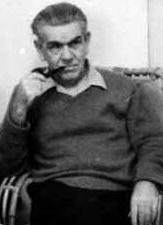 Left CommunismSome Marxists, especially in Western Europe and North America, rejected not only Stalinism, but also the policies of Lenin and the Third International that they regarded as insufficiently revolutionary for advanced capitalist societies (e.g., parliamentarism). They were also early and thorough critics of the degeneration of the Russian Revolution, eventually developing theories of state capitalism. These were revolutionary Marxists, not anarchists or Social Democrats, and they remain a force to this day. | ||
|
(1864-1927) < 5 Dutch socialist and poet, opposed WWI, became an advocate of ultra-left within Comintern. Leading supporter of the KAI. [Biography] (1868-1932) < 5 German left Social Democrat associated with the Bremen Radical Left, but never joined the KPD. (1873-1960) 30+ Dutch astronomer. Helped form a Marxist party in the Netherlands. Member of the German Social Democratic party. [Biography] (1915-2007) < 5 Dutch Left Communist. A central figure in the Council Communists movement (second-generation) and a Pannekoek sympathiser. (1874-1943) 5+ German Left Communist who voted with Karl Liebknecht against the war credits and was a founding member of the German Communist Party. [Biography] (1884-1935) < 5 Rumanian writer, after visiting Moscow became critical of the Comintern. [Biography] (1879-1947) < 5 French supporter of Esperanto and anti-nationalism. [Biography] (1880-1958) < 5 Scottish American socialist educator, founding member of the CPUSA, and later the Proletarian Party. Keracher was also a journalist and agitator. [Biography] (1883-1983) 10+ American Marxist economist, poet and artist. (1890-1936) < 5 A leader of Militant faction of the Socialist Party of America in the early 1930s and editor of The American Socialist Quarterly. (1929-2003) 5+ A key member of the British Institute of Workers’ Control, and a pioneer of the Voice group of newspapers. (1923-2005) 15+ British libertarian socialist, prominent neurologist and the intellectual leader of Solidarity (U.K.). |
(1882-1960) < 5 British Left-Communist and Suffragette. [Biography] (1889-1970) 5+ Italian Communist, was expelled from Comintern as an ultra-left, later leading an independent Marxist Party in Italy. [Biography] (1935-2025) 5+ French political economist, follower of Bordiga. (1893-1979) < 5 Italian Left-communist. [Biography] (1895-1958) < 5 French communist, trade unionist and anti-militarist. [Biography] (1898-1973) < 5 Austrian communist, joined SFIO in 1930s. [Biography] German Left Communist, later lived in the U.S.. Main exponent of “Council Communism” and opponent of idea of Revolution being led by a political party. [Biography] (1927-1995) < 5 Italian Marxist, active in trade unions after WW2, built Lotta Comunista, an independent communist current in Italy. [Biography] (1888-1975) < 5 German Left Communist, member of the Executive Committee of the Comintern and of the KAPD; acted as their delegate to the Third Congress of the Third International. (1879-1954) < 5 German Left Communist journalist, editor of Die Aktion. | |
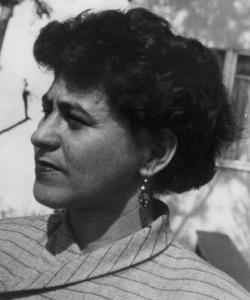 Marxist HumanismAlthough Marxist Humanism first appeared as a break-away form orthodox Trotskyism, in the 1960s many intellectuals in Eastern Europe and in the Communist Parties in Britain and the US, embraced a Humanist Marxism, emphasising human agency, rather than structural determinism and “iron laws of history” and so on. | ||
|
West Indian, Afro Caribbean. Lucid dialectician, historian, novelist, & playwright. Stressed the importance of non-white workers to the revolutionary movement, foresaw the civil rights movement decades before it got underway. [Biography] (1910-1987) 30+ American Russian Trotskyist, Humanist. Secretary to Trotsky, translated many Marx, Engels and Lenin. Critiqued Lenin's theory of the Party being the vanguard. [Biography] (1918-2001) 20+ American autoworker and life-long supporter of Raya Dunayevskaya and C L R James. [Biography] (1915-2015) 10+ Chinese-American supporter of Dunayevskaya & James. 10+ Jewish-American supporter of Dunayevskaya & James.
(1916-1962) < 5 American Communist, initiated the “New Left” in the U.S. [Biography] (1940-2013) < 5 American Marxistm Humanist and Urbanist from New York. [Biography] (1885-1997) < 5 German Marxist-Humanist Philosopher. (1912-1970) < 5 Polish Marxist Philosopher. (d. 1978) < 5 Polish Marxist Philosopher. (1922-1997) < 5 Greek philosopher, economist and psychoanalyst. Co-founder of the Socialisme ou Barbarie group. Perhaps better known by his pseudonyms Pierre Chaulieu and Paul Cardan. (1924-2010) < 5 French philosopher and activist. One of the founding members of Socialisme ou Barbarie; later formed Informations et Liaison Ouvrières. |
(1905-1996) < 5 French sociologist, Marxist humanist and with T.B. Bottomore, a prolific publisher and translator. [Biography] (1918-2000) < 5 U.S. Marxist philosopher. He was a founding member of the Society for the Philosophical Study of Marxism, where he served as president on several occasions. (1923-2000) < 5 Italian philologist, philosopher and Marxist. [Biography] (1916-2009) < 5 Marxist, historian, dissident Communist in 1956, set up The Reasoner with E.P. Thompson. [Biography] (1924-1993) < 5 English Marxist historian and humanist. [Biography] (1924-1994) 10+ English Marxist political critic and humanist. [Biography] (1929-1986) 5+ Belgian Marxist, contributor to and later co-editor of The Socialist Register. (1941-2007) < 5 English Hegelian-Marxist. [Biography] (1928-1995) < 5 Australian Marxist, elaborated ethical foundations of Marxism. The Praxis Group(1913-1993) < 5Croatian Marxist sociologist, Marxist Humanist, in Praxis group. [Biography] (1927-1993) < 5 Marxist Humanist, one of the main theorists in the Praxis Group and long-time editor of the journal Praxis. [Biography] (1927-2010) < 5 Serbian Marxist philosopher, one of the first and fiercest critics of the Stalinist philosophical theses in Yugoslavia, led return to study of Marx’s critical method in the mid-1960s. [Biography] | |
—— Market Socialists / Workers’ Self-Management —— | ||
|
(1904-1997) Former longstanding leader of the Chinese Communist Party; purged as a “capitalist roader” during the Cultural Revolution, but returned to power after Mao's death and led the gradual return of China to capitalism. [Biography] (1915-1989) < 5 Chairman of the Chinese Communist Party from 1981 to 1982, and General Secretary from 1982 to 1987. Hu was an ally of Deng Xiaoping, and favored moving China and the CCP away from Mao-era policies. |
(1919-2004) Czech dissident who became Deputy Prime Minister during the “Prague Spring” advocating a “Third Way” between capitalism and communism; in exile, became more of a social democrat of the Western variety. [Biography] (1928-2003) < 5 Political scientist, member of the Central Committee of the League of Communists of Serbia. [Biography] See also Eurocommunism by Manuel Azcárate. | |
—— New Worker / Communist Currents —— | ||
|
(1951-2002) < 5 Iranian Marxist. Built the Worker-Communist Party of Iran. (1963-2015) < 5 Iranian Marxist and trade unionist. |
(1953-2001) < 5 Filipino Communist. Led the split in the Communist Party of the Philippines in 1991 over strategy of guerilla warfare. Advocated the orientation to the workers movement, combining parliamentary and extra-parliamentary means of struggle. (1937-1995) < 5 Founder and leader of the secretive Communist Party USA (Provisional). | |
—— The Latin American Left —— | ||
|
(1908-1973) Leader of the Chilean Socialist Party and President of Chile in 1973, when he was overthrown by a US-organised coup. [Biography] |
||
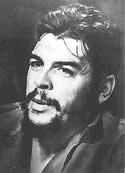 Guerilla MarxismSome Marxists, in countries where open political debate was impossible, turned instead to military struggle as a form of political organisation, retiring to the countryside and basing themselves on the peasantry, rather than the urban working class. | ||
|
(1928-1967) 10+ International Revolutionary. Helped create and maintain the Cuban Revolution. Creatively tried to establish socialism in Cuba, worked tirelessly to create revolutions throughout Africa and South America. Created the guerilla foco theory – building a revolutionary movement through militant resistance instead of party building. [Biography] “The road is long and, in part, unknown. We recognize our limitations. We will make the human being of the 21st century – we, ourselves.” [Che Guevara] (1946-1976) < 5A leader of the People's Fedayeen Guerilla Organization of Iran. [Biography] (1946-1972) < 5 The founder of the People Liberation Party-Front of Turkey (THKP-C) |
(1911-1969) < 5 A Brazilian revolutionary who led the National Liberation Action (ALN). His tactics inspired the Italian Red Brigades, the German Red Army Faction. Expelled from the Brazilian Communist Party for “pro-Cuban” sympathy. Executed by police. (1930-2014) < 5 A leader of the Montoneros, in Argentina in the 1970s. | |

MaoismIn the early 1960s, divisions opened up within the Comintern, with a current sympathetic to the Mao Zedong, as opposed to the Soviet leader Khrushchev, developing a distinct philosophical and political line, emphasising the role of the peasantry. | ||
|
Became leader of the Chinese Communist Party during the Long March in 1937, and led China to its Revolution in 1949 and remained its supreme leader until his death in 1976. [Biography] (1907-1971) Leader of the Red Army and firm supporter of Mao during the early part of the Cultural Revolution. Later reportedly attempted a coup and died while trying to flee China for the USSR. [Biography] (1898-1976) 10+ Most respected of the old generation of leaders of the Chinese Communist Party. [Biography] (1902-1997) Longstanding leader of the Chinese Communist Party; denounced during the Cultural Revolution, but survived and returned to leadership, as one who opposed restoration of the market. [Biography] (1886-1976) Longstanding leader of the CCP, denounced during the Cultural Revolution but later rehabilitated. [Biography] (1899-1967) < 5 Early leader of Chinese CP, regarded as ultra-leftist, denounced during Cultural Revolution, and committed suicide. [Biography] (1902-1969) 10+ Longstanding leader of the Chinese Communist Party who was denounced during the Cultural Revolution as a “capitaist roader” and died in prison. [Biography] (1917-2005) Part of the core leadership of China's Cultural Revolution. Worked closely with Mao's wife, Jiang Qing. (1893-1981) Important leader of the KMT, who later sided with the CPC. She was the first non-royal woman to officially become head of state of China, acting as Co-Chairman of the Republic in 1968-1972, and as President of China, in 1981.  “The revolutionary war is a war of the masses; only mobilizing the masses and relying on them can wage it.” (1920-2008) 5+ Led China after the Cultural Revolution after out-manoeuvering “Gang of Four” in a power struggle later in 1976. Deng Xiaoping's policies of reform began to take shape during Hua's tenure, and by 1980, leadership had shifted to Deng. [Biography] (1909-2005) < 5 Alternate member of the Politiburo elected by the 8th Central Committee of the CCP, secretary to the Central Secretariat of the 11th Central Committee, and full member of the the Politburo of the 12th Central Committee.
|
(1911-1998) < 5 American, joined US SWP in 1940, later supporter of Mao, founder of ‘Workers World Party’. (1923-1976) 5+ A founder of the Marxist-Leninist Socialist Unity Centre of India. (1945-1973) 5+ Turkish Maoist, founder of the TKP/Marxist-Leninist. (1912-1989) 10+ Anti-revisionist Secretary General of the Communist Party of New Zealand. Favored China in the Sino-Soviet split. (1939-2022) Founder of the Communist Party of the Philippines (CPP) in 1968 which split from the old communist party, the PKP-1930, under the banner of Maoism. Developed the Philippine tendency of National Democracy and applied the semi-feudal semi-colonial thesis to the Philippines. (1901-1981) <5 Indian Maoist leader in West Bengal and elsewhere. A founder of the Maoist Communist Centre. Naxalites(1918-1972) 20+A founder of the pro-Chinese Communist Party of India (Marxist-Leninist), died in police custody. [Biography] (1947-1998) 10+ Longstanding leader of the Communist Party of India (Marxist-Leninist) Liberation. (1952-2010) 5+ Member of the Communist Party of India (Moist), and a leading member, ideologue, and spokesperson of the Political Bureau of its Central Committee. Also known as "Azad". (1944-1975) 5+ Bengali intellectual and revolutionary. He helped found the Proletarian Party of East Bengal and took part in guerrilla warfare. (1942-2019) 5+ Naxalite leader in Bihar and Orissa, later became General Secretary of the Provisional Central Committee of the Communist Party of India (Marxist-Leninist). See Also: Anuradha Gandhy —————— (1925/28-1998) 5+ Head of the Cambodian Communist Party, also known as the Khmer Rouge, and head of state of Democratic Kampuchea (1975-1979), whose policies led to the deaths of up to a quarter of Cambodia's population. | |

National LiberationParticularly in the decades after the end of World War Two, communists were in the leadership of national liberation struggles, the leaders of these struggles developed a distinct approach to socialist theory. | ||
|
(1890-1969) 30+ Longstanding leader of the Vietnamese national liberation movement; set-up a guerilla base in the countryside in 1944, going on to defeat the French in 1954, but dying before final victory over the US invasion in 1975. [Biography] (1907-1988) < 5 Deputy to Ho Chi Minh from 1941 to 1957, and after 1958 the leading theorist of the Vietnamese Communist Party. (1911-2013) < 5 Outstanding General and leader of the Vietnamese liberation movement. (1906-2000) < 5 Leader of the Vietnamese Army in the wars against both the French colonial forces and the US invaders. Foremost theorist of protracted warfare. [Biography] (1908-1986) 5+ Led Communist forces in South Vietnam after French withdrawal in 1954 and was First Secretary of North Vietnam Communist Party from 1959. After Ho Chi Minh’s death in 1969, became Party leader. [Biography] (1891-1965) lt;5 Leader of Puerto Rican Nationalism. [Biography] (1912-1994) 5+ Founding head of state of Democratic People's Republic of Korea. (1907-1931) 10+ Leader of the militant and socialist wing of the Independence Movement in India; hanged by the British in 1931. [Biography] Marxism and Anti-Imperialism in India. (1902-1959) 30+ West Indian, CPUSA and Comintern 1927-1935, became leading advocate of Pan-Africanism. [Biography] (1898-1985) <5 Leader of CPUSA and Comintern. Supported Mao and was expelled from the CPUSA. [Biography] |
(1881-1936) 20+ One of modern China’s most prominent and influential writers. His work frequently promoted radical change through criticism of antiquated cultural values and repressive social customs. [Biography] (1898-1974) 5+ Algerian communist and founder of the modern Algerian nationalist movement; supporter of the Russian Revolution. [Biography] (1925-1961) < 5 West Indian-born, French/Algerian doctor and intellectual whose works addressed the problems of developing national consciousness in the oppressed people, an inspiration for the US Civil Rights movement as much as in Black Africa. [Biography] (1921-1997) < 5 Brazilian educator, member of the Workers' Party. (1935-2003) < 20 Palestinian-American professor of literature at Columbia University, and a founder of the academic field of postcolonial studies. (1936-1972) < 5 Palestinian writer and a leading member of the Popular Front for the Liberation of Palestine. Marxism and Anti-Imperialism in Latin America. Leader of the Cuban Revolution and President of Cuban Republic. [Biography] (1937-2022) 5+ Cuban Communist. He was Permanent Representative to the UN, Minister of Foreign Affairs and President of the National Assembly of People's Power. (1918-1997) 5+ Maoist and union leader who was elected President of Guyana. [Biography] (1937-2019) 5+ Chilean journalist, psychologist, sociologist and pedagogue. She cooperated with the Allende government in Chile and was an advisor to the Cuban government and to Hugo Chávez. (1954-2013) 5+ M Venezuelan socialist, president of the Bolivarian Republic of Venezuela from 1999 until his death in 2013. He was the main architect of the Bolivarian Revolution in Venezuela, seeking to build a socialism for the 21st century. | |

African Liberation MovementThe struggle against colonialism in Africa, to create independent socialist states, brought forward several generations of heroic fighters, who contributed to the development of Marxist ideas. | ||
|
(1909-1972) < 5 Nkrumah was the force behind the movement for independence of Ghana, then British West Africa, first president of independent Ghana in 1957. His 1965 “Neocolonialism, the last stage of imperialism,” introduced the concept of “neocolonialism.” [Biography] (1910-2001) < 5 Life-long activist for the African National Congress and the South African Communist Party. [Biography] (1920- ) < 5 Journalist, Cental Committee member of the South African CP, ‘natives representative’ in Parliament before being banned, and fleeing to Britain. [Biography] (1926-1995) < 5 Leader of the South African Communist Party in 1991 till his death in 1995, leading SACP after the collapse of the USSR, to the final overthrow of apartheid. [Biography] (1921-1999) < 5 South African Trotskyist. Organiser for Workers International League, participated in the armed struggle, imprisoned, but went into exile in 1973. [Biography] (1936-2012) 10+ South African Trotskyist and world-renowned linguist. |
(1910-1995) < 5 Leader of the Somali Revolutionary Socialist Party and of the Somali Democratic Republic. (1922-1999) < 5 Pan-Africanist, socialist and leader of Tanzanian independence struggle and its first President. [Biography] (1920-1965) 5+ Leader of Moroccan Revolutionary movement; Pan-Africanist. [Biography] (1924-1973) 10+ Leader of independence struggle in Guinea-Bissau, assassinated by Portuguese agents. [Biography] (1925-1961) < 5 Leader of independence movement in the Congo, executed by Belgian colonial police, despite U.N. calls for his release. [Biography] (1933-1986) < 10 Leader of independence movement in Mozambique, FRELINO. [Biography] (1949-1987) < 5 Burkinabé revolutionary, Marxist and pan-Africanist. | |
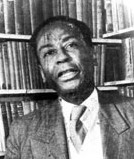
Black LiberationFrom the 18th century up to the present people of colour have resisted oppression by white capitalist powers and have developed a distinct current of revolutionary socialist thinking. | ||
|
(1743-1803) 10+ The “Black Jacobin” who led a slave rebellion in Haiti in 1800 and created the first Black Republic, inspired by the French Revolution. (1800-1859) 5+ American slave-abolitionist who aimed to build an emancipation army, hanged after a shoot-out with Robert E. Lee. |
US Black Muslim leader, assassinated in 1965. Black Panther Party (1966-1998) (1942-1989) 5+ Co-founder, lead theoretician and Minister of Defense of the Black Panther Party. (1948-1969) < 5 Chairman of the Illinois Chapter of the Black Panther Party. See Also: George Padmore, C.L.R. James, Claude McKay, Frantz Fanon and Angela Davis. | |
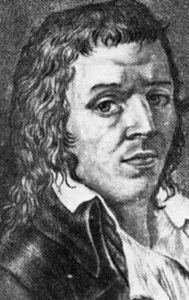
The French RevolutionThe leaders of the French Revolution were the first to develop modern social theory and laid the basis for the modern socialism. Rousseau traced the origins of inequality to private property, and Babeuf is credited with being the first Communist. The socialist ideas from the French Revolution are one of the sources of Marxism. | ||
|
(1709-1751) 5+ Militant atheist. [Biography] (1712-1778) It has been said that the French Revolution, put Rousseau's philosophy into practice, in particular his idea of the Social Contract. Although he died 20 years before the Revolution, he was its principle theorist. [Biography] (1743-1793) 10+ Leader of the left wing of the Revolution, inspired the execution of royalist prisoners which launched the second, radical phase of the Revolution; his murder set off the Great Terror. [Biography] (1758-1794) 10+ Leader of the Jacobins and instigator of the Great Terror, Robespierre was the ultimate “moralist.” His overthrow marked the end of the radical phase of the Revolution. [Biography] |
(17??-1794) 5+ Priest who became a leader of the popular democratic Enragés during the French Revolution. He was renowned for the foul and abusive language of his journalism. [Biography] (1757-1794) 5+ Leader of the extreme left-wing during the Revolution and spokesperson of the sans coulottes. Hébert initiated a planned economy before his overthrow, after which the Revolution lost the support of the poor. (1723-1789) 5+ French materialist and atheistic philosopher. [Biography] Rose to prominence in the twilight of the Revolution, convening a running public forum organising for more radical measures. He can be regarded as the first communist and an advocate of popular sovereignty and participatory democracy. [Biography] | |
|
Founder of the communist movement in the 1830s, he believed communism could be achieved by the dictatorship of a radical minority. He was immensely popular in France and elsewhere but spent most of his days in prison. [Biography] (1810-1889) Veteran of the Revolution of 1848 and a leader of the left-wing of the Paris Commune. [Biography] (1837-1891) <5 Populist French military leader. |
The Paris Commune
(1832-1885) 5+ Agitator, editor of Le Cri du Peuple. [Biography] (1831-1913) Journalist, deputy to Government of National Defence for Paris. [Biography] (1830-1905) Nurse, soldier, hero of the Commune and labour organiser. [Biography] | |

Utopian SocialismVisions of a better society have been a concern of thinkers since ancient times, and a part of the critique of existing conditions. The speculations of the early 19th century Utopians are an important contribution to Marxism. Fourier and Owen in particular were much admired by Marx and Engels. | ||
|
(1478-1535) Thomas More wrote Utopia in 1515, looking forward to a world of individual freedom and equality governed by Reason, at a time when such a vision was almost inconceivable. [Biography] (1611-1677) Common-Wealth of Oceana was based on universal land-ownership and was a militant republic dedicated to spreading its democratic system to the rest of the world. Cromwell banned it. [Biography] (17??-17??) Little is known of Morelly; Code of Nature was an attempt to provide a systematic philosophical justification of his communist ideas. [Biography] (1760-1825) French Utopian socialist who took part in War of Independence of the United States; opposed Deism and promoted the study of Nature. [Biography] |
French Utopian socialist who criticised the bourgeois society established by the French Revolution. He promoted the role of environment and education in moulding personality. [Biography] Welsh industrialist and social reformer; formed a model industrial community at New Lanark, Scotland, and pioneered cooperative societies. [Biography] (1788-1856) His followers, known as the Icarians, established ill-fated utopian communities in Illinois, Missouri, Iowa, and California. [Biography] ———— (1850-1898) American author, famous for his utopian novel set in the year 2000, Looking Backward, published in 1888. [Biography] | |

Anarchists and SyndicalistsAnarchism is a political current that has existed in the working class movement from its beginning and was an important component of the First International, but parted company with Marxism in the late 19th century. | ||
|
Founding theorist of anarchism, advocated cooperative society. [Biography] (1842-1921) 10+ Leader of Russian Anarchism. [Biography] ———— French Anarchists (1854-1907) < 5 French anarchist. [Biography] (1859-1892) 5+ ‘Bomb-throwing’ French anarchist. [Biography] (1864-1930) 5+ Radical French anarchist, opponent of electoralism. [Biography] (1865-1903) 5+ French anarchist and militant opponent of anti-Semitism. [Biography] And others including: Emile Armand (1872-1963), Armand Barès (1809-1870), Georges Darien (1862-1921), Manuel Devaldes (1875-1956), Georges Etiévant (1865-), Emile Henry (1872-1894), Libertad (1875-1908), Jean-Patrick Manchette (1942-1995), Georges Palante (1862-1895), Emile Pouget (1860-1931), Han Ryner (1861-1938), Gustave Hervé (1871-1944), Sebastien Faure (1858-1942) and Andre Lorulot (1885-1963). (1862-1915) <5 Spanish anarchist. [Biography] (1869-1928) <5 Miner, leader of the I.W.W., socialist and syndicalist. [Biography] (1900-1974) <5 British anarcho-syndicalist. |
Russian nobleman who advocated revolutionary anarchism; participant in the First International winning leadership of a significant section of the International in the 1870s. [Biography] (1846-1892) Italian supporter of Bakunin in First International. (1844-1916) Biographer of Bakunin and theorist for anarcho-syndicalism. [Biography] (1853-1932) 20+ Leader of Italian anarchism, anarcho-syndicalist. [Biography] (1870-1936) <5 Russian anarchist, supporter of Kronstadt rebellion. (1884-1934) 20+ Leader of anarchist forces during the Wars of Intervention after the Russian Revolution. [Biography] American anarchist and writer, deported to the Soviet Union, fought in Spanish Civil War. [Biography] (1873-1958) 5+ German anarcho-syndicalist, worked in Jewish anarchist movement in London before going to New York. [Biography] (1901-1973) < 5 Russian-born anarchist and author. (1830-1930) Prolific and legendary American labor organiser. [Biography] (1854-1939) 5+ American anarchist. [Biography] (1934-1985) 5+ Czech anarchist writer and musician, emigrated to the U.S. [Biography] (1921-2006) < 5 American libertarian socialist, philosopher and environmentalist. Anarchist for much of his life, however in 1995 he founded his own political theory called "Communalism". (1886-1963) 5+ Scottish anarchist and communist. Founder of Anti-Parliamentary Communist Forum and of the United Socialist Movement. Edited several libertarian socialist newspapers. | |
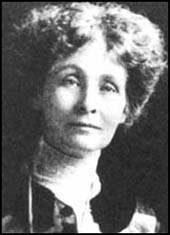
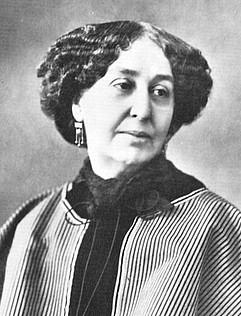
FeministsFrom the 18th century up to the present, women fighting against their oppression by patriarchal structures have developed political science, ethics and critical philosophy and contributed to the development of revolutionary theory. Many were Marxists. | ||
|
(1759-1797) English radical who was the first woman to systematically enquire into the causes of women's oppression. [Full Biography] |
(1856-1915) Friend of John Stuart Mill, and her work was published under his name, one of the earliest arguments for the emancipation of women, in the tradition of classical liberalism. [Full Biography] | |
|
(1855-1920) South African-born, British socialist and novelist. [Full Biography] (1862-1950) American socialist and union organiser. [Full Biography] (1869-1949) Australian suffragette, feminist and anti-militarist. [Full Biography] (1876-1958) American socialist and historian. [Full Biography] |
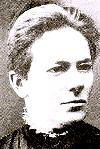
(1890-1964) American feminist, joined IWW, and later the CPUSA. [Full Biography] (c. 1880-1932) Pioneer of women's liberation movement in South Asia. [Full Biography] (1954-2008) <5 Member of the Central Committee of the Communist Party of India (Maoist). She directed her party's work among women, and was a leader in the trade union, and dalit and adivasi rights movements in Jharkand and Maharastra. | |
|
See Also: Sylvia Pankhurst, Clara Zetkin, Eleanor Marx, Dora Montefiore, Alexandra Kollontai. | ||
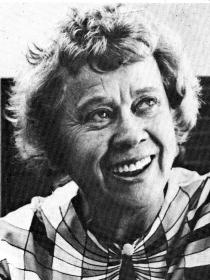 (1905-1979) 10+
(1905-1979) 10+ Member of the American Trotskyist movement, socialist feminist, was one of the first to challenge anthropological and other spurious justifications for patriarchy. [Full Biography] |
(1908-1986) Author of The Second Sex, the most significant review of approaches to the critique of women's role in history and modern society. De Beauvoir was an Existentialist. [Full Biography] | |
|
(1921-2006) Psychologist, a student of Kurt Koffka, who criticised Freudian psychoanalysis for its rationalisation of sexist attitudes; exposed the deep crisis affecting American housewives, excluded from the workforce and confined to housework. [Full Biography] (1923-1998) Socialist-feminist, founder of Freedom Socialist Party in Seattle. 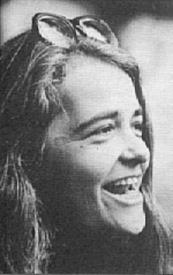
Radical Feminist, who argued for the expansion of the conceptions of historical materialism to include the processes of domestic labour and reproduction. May have coined the word “sexism.” [Full Biography] (1939-) Australian Radical Feminist [Full Biography] (1940-) New Zealand-born, British feminist who endeavoured to reconcile feminism with psychoanalysis. [Full Biography] (1941-) American Socialist feminist and journalist. [Full Biography] (1943-) British socialist feminist; wrote for the Trotskyist ‘Black Dwarf’ before publishing ‘Women’s Liberation and the New Politics’ arguing that women were oppressed in cultural as well as economic terms. A pioneer of women’s history. [Full Biography] (1944-) A member of the CPUSA for some time, Davis is a supporter of Cuba and an active campaigner for radical alternatives to prison. Her criticisms of the exclusive focus of the modern women's movement on the concerns of middle-class white women was influential. [Full Biography] |
(1945-) Radical feminist who argued that the concept of class should be expanded to encompass the notion of women as a sex-class, and thus utilise the ideas of Marxism and class struggle to understand the nature of women's oppression. [Full Biography] ( ) Socialist Feminist who argued both against the overreaction of feminists against socialism and the antipathy of socialists to feminism. (1943- ) Australian historian who has contributed to uncovering the role of women in history, and analysed the historical development of the women's movement itself. [Full Biography] (1946-2016) Australian Trotskyist and feminist, worked at the Working Women's Centre at the ACTU and researched the socialisation of women's labour and sexual harassment. ( ) Argues for a feminism based on historical materialism, against the postmodern feminism of people like Judith Butler, which she calls “ludic feminism.” [Teresa Ebert home page] 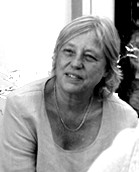 ( )
( ) Historian who has contributed to uncovering the role of women in history, and analysed the historical development of the women's movement itself. [Full Biography] ( ) American “Ethical feminist,” professor of political science, women's studies, and comparative literature at Rutgers University. [Feminist Theory Website] ( )
| |
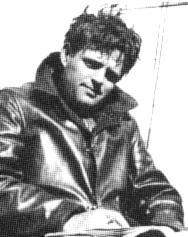
Socialist Populists, Historians and JournalistsSome writers have advocated the overthrow of capitalism or were outspoken supporters of the Soviet Union, but did not see themselves as Marxists, or may have combined reactionary “populist” rhetoric with calls for socialism. Some writers have contributed to the development of socialism simply by reporting on its struggles in their professional capacity as journalists, often eye-witnesses to revolutionary struggles, although not themselves participants. | ||
|
(1828-1889) Influential Russian novelist. (1873-1958) Left-wing British journalist who visited and publicised the achievements of the Soviets. (1874-1966) American radical journalist of the 1920s and 1930s. [Biography] (1876-1916) American novelist, and populist socialist. [Biography] (1878-1968) Radical American writer who exposed the conditions of the poor in the industrial cities of the U.S.. [Biography] (1880-1968) 5+ Keller was deaf and blind but became renowned for her abilities. She was a firm supporter of the Russian Revolution and the IWW. [Biography] (1884-1967) British journalist and writer who visited the Soviet Union after the Bolshevik revolution. (1889-1943) Member of German USPD and later the Comintern, historian. (1885-1973) British Journalist who reported on the Russian Revolution and post-Revolutionary Russia. (1897-1969) Journalist for the Christian Science Monitor, who visited the Soviet Union after the Revolution; provided information to US intelligence. [Biography] (1927-2006) Correspondent of the British CP who witnessed the “Hungarian Tragedy” in 1956. |
(1885-1970) 5+ American Progressive journalist who reported on revolutions from Russia to Spain to China, a unique source of sympathetic views for American workers. [Biography] (1894-1985) British labour educator, historian and proponent of Esperanto. Joined the Labour Party after a time in the CPGB. [Biography] (1898-1976) African-American Marxist and world-renowned singer and civil rights and anticolonialist fighter. [Biography] (1905-1937) Prominent Hungarian revolutionary poet. He was involved in various Communist groups throughout his life and wrote about Freudian-Marxism. (1907-1967) 5+ Polish writer and communist expelled for his opposition to Stalin, later biographer of Trotsky. [Biography] (1902-1979) Irish-American novelist, at one time a Trotskyist. [Biography] (1903-1950) British dystopian novelist, fought with Republicans in Spain, became anti-Stalinist, worked with the I.L.P. (1905-1960) Sociologist who studied the benefits to families and children of the policies of the Soviet Union towards women. [Biography] (1910-1986) American journalist who witnessed and chronicled the “Tragedy of the Chinese Revolution.” (1922-2010) American historian, best known for his A People's History of the United States (1980). (1926-2000) 5+ Polish-Jewish socialist journalist and writer. He was best known for his articles for The Nation in the United States and for The Economist in Britain. (1939-2023) <50 Australian journalist and critic of imperialist war. | |
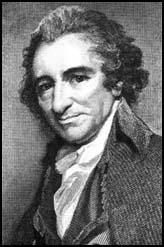
Foundations of Political ScienceThe history of political science is inseparable from the art of war and the problems of philosophy, and there is a long history to discussion of the problems of modern political theory. These writers are the pioneers of political science and revolutionary theory. | ||
|
(c 420 BCE) Ancient Chinese philosopher, author of The Art of War, which sums up the wisdom of centuries of Chinese political experience. [Biography] (1469-1527) 15th century Italian civil servant who put in writing the political methods of Renaissance Europe. [Biography] (1588-1679) English philosopher and political theorist of the state. [Biography] A leader of the True Levellers in the English Revolution of 1648. [Biography] (1632-1704) English Empiricist who was the main theorist of the development of bourgeois political institutions in Britain. [Biography] |
(1737-1809) English democratic and Deist journalist who formulated the concepts of civil liberty behind the American War of Independence and the French Revolution. Author of The Rights of Man. [Biography] (1780-1831) Prussian military theorist admired by Marx, Engels and Lenin. [Biography] (1782-1863) Founder of social medicine. [Biography] (1805-1859) French diplomat who studied the development of democratic forms of society in America. [Biography] (1812-1875) Leader of True Socialism, early associate of Marx. [Biography] (1842-1924) A leader of Tammany Hall, the corrupt local government group in 19th century New York. [Biography] (1892-1957) Early 20th century Australian Labor Party official and the Communist Party in Britain. (1921-) Left sociologist, literary and cultural critic. [Biography] | |

PhilosophyThe Value_of_Knowledge archive includes classic works by over 140 writers from the Copernican Revolution up to the present time, centred on problems in the epistemology, the theory of knowledge. | ||
|
(1561-1626) Founder of British Empiricism. [Biography] (1623-1662) French mathematician and philosopher. (1596-1650) Founder of French Rationalism. [Biography] (1632-1677) Critic of Descartes, early materialist philosopher. [Biography] (1694-1788) French political philosopher. [Biography] (1713-1784) French materialist philosopher. [Biography] (1744-1803) German philosopher, Romantic critic of Kant, rehabilitated Spinoza. (1743-1819) German philosopher, advocate of knowledge by faith, critic of Spinoza. [Biography] (1762-1814) German philosopher, introduced Recognition and Activity to philosophy. [Biography] (1775-1854) German philosopher, objective idealist, early associate who later denounced Hegel. [Biography] The greatest philosopher of “German Idealism,” theorist of modern dialectics and the most important influence on Marx and Engels and essential to Marxism. [Biography] (1800-1856) Exiled German poet and revolutionary democrat, much admired by Marx. [Biography] (1812-1875) Left communist, follower of Babeuf and Fichte. [Biography] |
(1798-1857) Founder of Positivism, an early advocate of the emancipation of women. [Biography] (1792-1822) English poet and revolutionary-atheist. [Biography] (1806-1856) Young Hegelian, philosopher of individual anarchism. [Biography] (1804-1872) German philosopher, materialist and atheist critic of Hegel, and an influence on the young Marx in the 1840s. [Biography] (18??-19??) Scottish Hegelian, translator. (1856-1925) British Hegelian, principal translator and advocate for Hegel in the English language. Later abandoned Hegelianism. [Biography] (1881-1968) American Hegelian, Cornell University. American Hegelian, University of Washington. (1866-1952) Important Italian Hegelian and socialist philosopher, one of the early advocates of Marxism in Italy, but became a reformist. [Biography] (1864-1920) German sociologist and political economist best known for his thesis of the “Protestant Ethic”; an early proponent of positivist sociology and historiography, theorised “status order” rather than class. Regarded by many as the main alternative to Marx; developed the concept of “ideal types.” [Biography] (1859-1952) American philosopher, educator, Pragmatist. [Biography] British Trotskyist, philosopher. | |
Marxism and PhilosophyHistory of Philosophy(1607-2001) Classical German Philosophy (1766-1851) Liberation Epistemology (1934-2001) Recent Marxism (1960-2003) |
Marxism and EthicsClassics of Ethics(1673-1998) (1724-1804) 10+ Founder of German Idealism whose works remain the foundations of secular Ethics. [Biography] ———— (1817-1862) American liberal and romantic writer. [Biography] (1844-1900) German ethicist and existentialist philosopher. [Biography] (1854-1888) German ethicist and existentialist philosopher. [Biography] See Also: Robespierre, Simone de Beauvoir, Eugene Kamenka. | |

Political EconomyPolitical Economy grew out of moral philosophy in the late 18th century as a new and distinct branch of science, dedicated to understanding how people can live. The critical study of the political economists absorbed much of Karl Marx's life. | ||
|
Originally a moral philosopher, became the greatest of the British political economists; first to develop a labour theory of value. [Biography] (1766-1834) British political economists who theorised economic basis for development of society, and infamous for his reactionary theory of population. [Biography] (1806-1873) Contemporary and opponent of Karl Marx, English liberal theorist, early positivist and a Utilitarian in ethics. [Biography] Marxist Political Economy 1887-1995 (1920-1977) U.S. Marxist Political Economist. [Biography] English Marxist Political Economist. |
(1856-1915) American management theorist who invented “scientific management.” [Biography] (1858-1940) 15+ English, socialist economist who was a major theorist of imperialism, was somewhat of a centrist in politics. [Biography] British political economist who developed the theory of the welfare state & macroeconomic control of unemployment by public spending. [Biography] Classics of Political Economy 1673-1936
| |

Natural ScienceMarxists have always taken a keen interest in the development of the natural and social sciences and the philosophical problems arising out of science. Even scientists who have had conservative political views have contributed to revolutionary ideas. | ||
|
(1809-1882) English biologist who formulated the idea of evolution of species by natural selection. [Biography] (1818-1881) Anthropologist who formulated the idea of development of human society through definite stages corresponding to evolution of the forces of production. [Biography] (1856-1939) Psychologist, founder of psychoanalysis. [Biography] |
(1879-1955) Discoverer of Theory of Relativity and the Quantum nature of energy; devoted his life to fight for peace and world government. [Biography] Foundations of Mathematics (1911-1950) Epistemology & Modern Physics (1925-1958) Classics in Psychology (1874-1989) | |
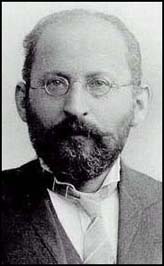 “
“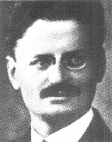 “
“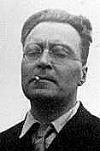 “
“ “
“
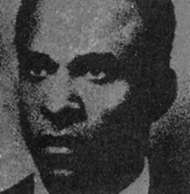
 “
“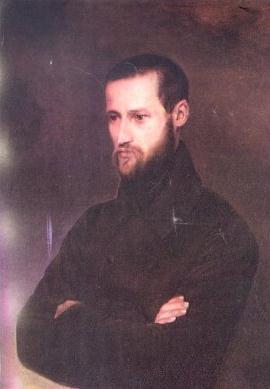 “
“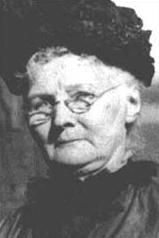
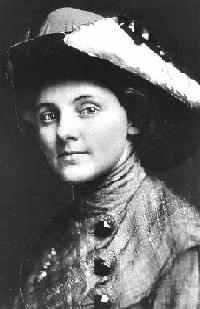 “
“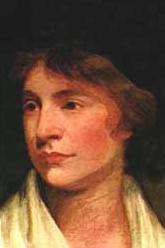 “
“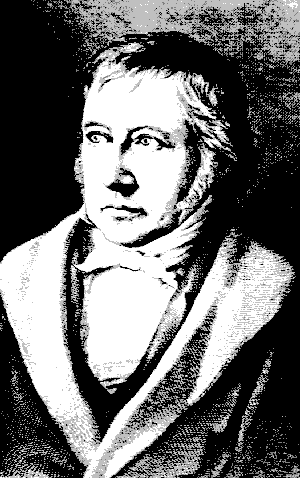 “
“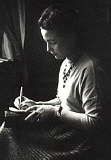 “
“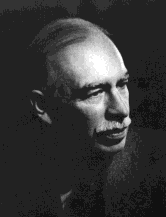 “The effect of combination on the part of a group of workers is to protect their relative real wage. The general level of real wages depends on the other forces of the economic system.”
“The effect of combination on the part of a group of workers is to protect their relative real wage. The general level of real wages depends on the other forces of the economic system.”